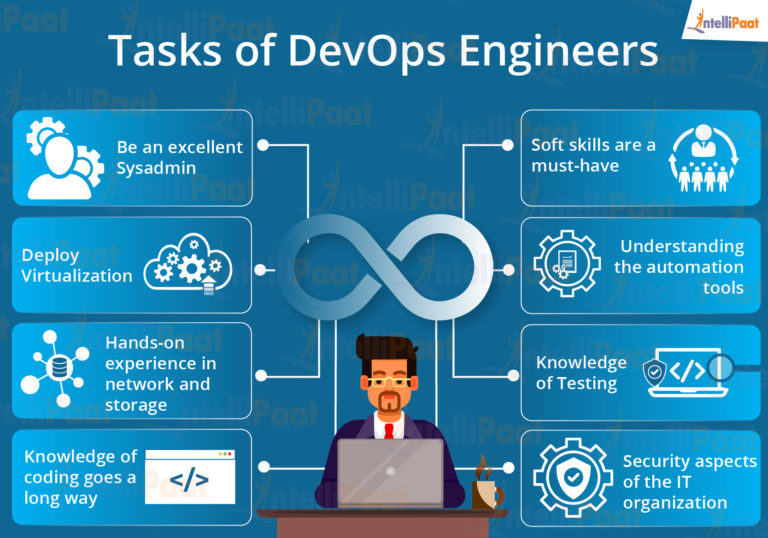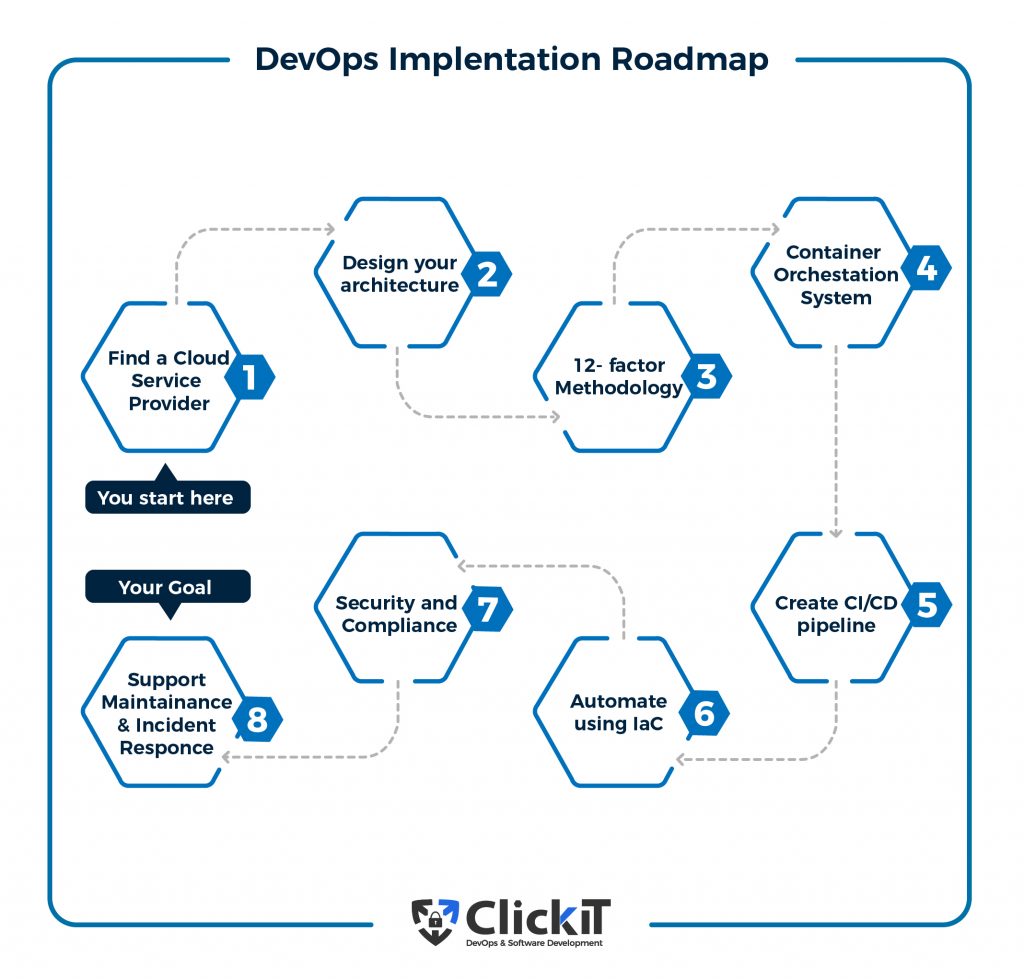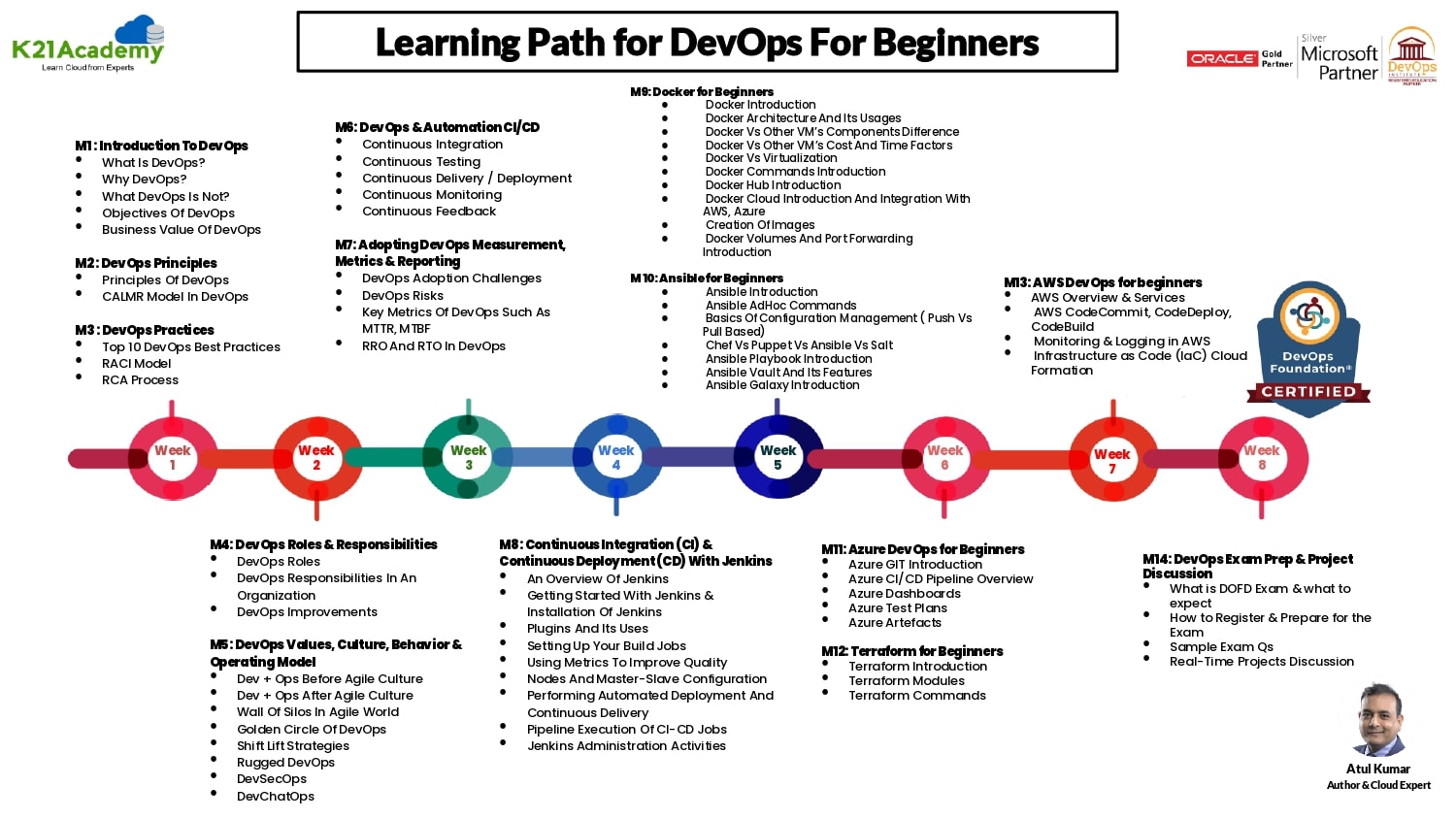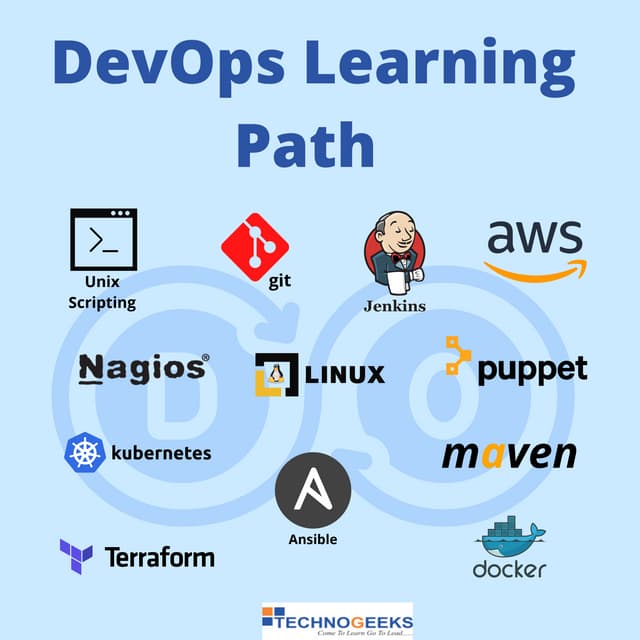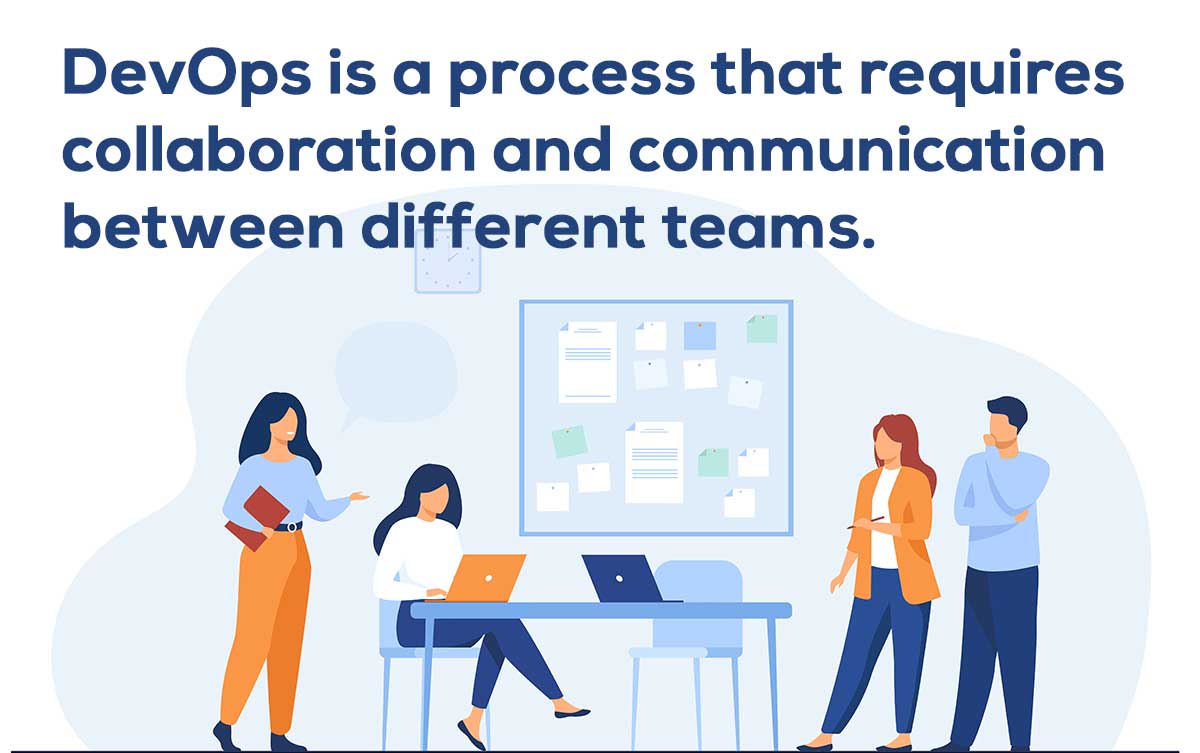What is DevOps and Why is it Relevant?
DevOps is a set of practices that combines software development (Dev) and IT operations (Ops). Its primary goal is to streamline the software development lifecycle, enabling organizations to deliver high-quality software products rapidly and consistently. By adopting DevOps principles, development and operations teams can collaborate more effectively, automate manual processes, and continuously improve their workflows.
The importance of DevOps has grown significantly in recent years due to the increasing demand for faster software delivery and the need for improved collaboration between development and operations teams. According to a report by Grand View Research, the global DevOps market size was valued at USD 6.73 billion in 2020 and is expected to grow at a compound annual growth rate (CAGR) of 19.7% from 2021 to 2028. This growth is driven by factors such as the adoption of cloud computing, the increasing need for continuous software delivery, and the growing importance of digital transformation.
Adopting DevOps practices can lead to increased efficiency, productivity, and collaboration between development and operations teams. By breaking down silos and promoting a culture of shared responsibility, DevOps helps organizations reduce the time to market for new software features, improve product quality, and respond more quickly to customer needs. Furthermore, by automating manual processes, DevOps reduces the risk of human error, enabling teams to focus on higher-value tasks and innovation.
Identifying Learning Goals and Objectives
When embarking on a DevOps learning path, it is crucial to establish clear learning goals and objectives to ensure a focused and productive learning experience. By identifying specific skills and knowledge areas to concentrate on, learners can create a personalized learning plan that caters to their individual needs, background, and learning style.
Some key areas to consider when defining your DevOps learning goals include:
- Continuous Integration (CI): CI is the practice of integrating code changes into a central repository frequently, ideally with each commit. This enables teams to identify and address integration issues early in the development process. Key CI tools include Jenkins, CircleCI, and Travis CI.
- Continuous Delivery (CD): CD is the process of automating the release of software updates to production environments. By implementing CD, teams can reduce the time and effort required to deploy new features and bug fixes. Popular CD tools include GitLab CI/CD, GitHub Actions, and AWS CodePipeline.
- Infrastructure as Code (IaC): IaC is the practice of managing and provisioning infrastructure using configuration files, rather than manual processes. This approach promotes consistency, reproducibility, and version control for infrastructure resources. Key IaC tools include Terraform, Ansible, and Chef.
- Monitoring and Logging: Monitoring and logging are essential for maintaining the health and performance of production systems. By analyzing system metrics and logs, teams can quickly identify and resolve issues, ensuring optimal user experience. Popular monitoring and logging tools include Prometheus, Grafana, and ELK Stack (Elasticsearch, Logstash, and Kibana).
By setting clear learning goals and objectives, DevOps learners can create a targeted and efficient learning plan that lays the foundation for a successful DevOps career. Remember to regularly evaluate progress and adjust the learning path as needed to stay aligned with personal and professional goals.
Mapping Out a Personalized DevOps Learning Path
DevOps is a rapidly growing field in the software development industry, and creating a personalized learning path can help you stay ahead in your career. With a variety of resources and learning materials available, it’s essential to choose the ones that best suit your individual goals, background, and learning style.
To get started, first, assess your current knowledge and experience in software development, IT operations, or any related fields. This evaluation will help you identify areas where you need improvement and focus your learning efforts accordingly.
Next, define your learning goals based on specific DevOps skills and knowledge areas, such as continuous integration, continuous delivery, infrastructure as code, and monitoring and logging. Having clear objectives will enable you to create a targeted and efficient learning plan.
Choose the right learning format by considering self-paced online courses, instructor-led training, books, or a mix of these resources. Online platforms like Coursera, Udemy, and LinkedIn Learning offer a variety of DevOps courses, while blogs and forums, such as DevOps.com and the official documentation for popular tools, provide valuable insights and practical tips.
Establish a learning schedule that accommodates your work and personal commitments. Break your learning goals into manageable tasks and allocate sufficient time to complete each task. Consistency is key to maintaining motivation and making steady progress.
Don’t forget to get hands-on experience with DevOps tools and platforms. Practice is essential for mastering DevOps concepts and tools. Begin with basic tools like Jenkins, Docker, and Kubernetes, and gradually move towards more complex ones as your skills and confidence grow.
Lastly, engage with fellow DevOps professionals and enthusiasts through online forums, social media groups, and local meetups. Sharing knowledge, collaborating on projects, and seeking support from the DevOps community will enrich your learning experience and provide valuable networking opportunities.
By following these steps, you can create a personalized DevOps learning path that caters to your individual needs and background. Remember to stay flexible and open to new learning opportunities, as the DevOps landscape is constantly evolving.
Getting Started: Hands-On DevOps Experimentation
Once you have a solid understanding of the core principles of DevOps, it’s time to get hands-on experience with various tools and platforms. This approach will help you apply your knowledge in real-world scenarios and gain practical skills.
Start by exploring beginner-friendly tools and platforms that are widely used in the DevOps ecosystem. Some popular examples include:
- Jenkins: An open-source automation server that enables developers to build, test, and deploy their software applications. Jenkins offers a user-friendly interface and extensive plugin support, making it an excellent choice for those new to DevOps.
- Docker: A platform that allows developers to create, deploy, and run applications in containers. Docker simplifies the process of creating consistent development, testing, and production environments, making it an essential tool for DevOps practitioners.
- Kubernetes: An open-source platform designed to automate deploying, scaling, and managing containerized applications. Kubernetes provides a powerful foundation for managing complex DevOps environments, and it’s a valuable skill for those looking to advance their careers in the field.
To get started with these tools, consider the following steps:
- Install the tools on your local machine or a cloud-based environment.
- Follow official documentation and tutorials to learn the basics.
- Experiment with simple projects to apply your new skills.
- Gradually move towards more complex projects and scenarios as your confidence grows.
- Join online communities and forums to ask questions, share knowledge, and collaborate with fellow DevOps practitioners.
By getting hands-on experience with DevOps tools and platforms, you’ll be better prepared to contribute to DevOps initiatives in your organization and advance your career in the field.
Building a Strong Foundation: Understanding DevOps Fundamentals
DevOps is built upon a set of core principles that promote collaboration, automation, and continuous improvement. Grasping these fundamentals is crucial for success in your DevOps learning path. Here, we’ll discuss the importance of understanding these principles and how they can be applied in real-world scenarios.
- Collaboration: DevOps encourages a culture of collaboration between development and operations teams. By breaking down silos and fostering open communication, teams can work together more effectively to deliver high-quality software products. This collaboration extends to other areas, such as sharing knowledge, addressing issues, and making informed decisions.
- Automation: Automation is at the heart of DevOps. By automating repetitive tasks, teams can reduce manual errors, save time, and focus on higher-value activities. Automation can be applied to various stages of the software development lifecycle, including build, test, deployment, and monitoring.
- Continuous Improvement: DevOps emphasizes the importance of continuous learning and improvement. By regularly reviewing processes, tools, and practices, teams can identify areas for improvement and implement changes that drive value and efficiency. This mindset helps organizations stay competitive and responsive to changing market conditions and customer needs.
To apply these principles in real-world scenarios, consider the following strategies:
- Promote a culture of collaboration within your team and organization.
- Identify repetitive tasks that can be automated, and implement appropriate tools and workflows.
- Establish a regular feedback loop to drive continuous improvement.
- Encourage knowledge sharing and mentoring among team members.
- Celebrate successes and learn from failures to foster a growth mindset.
Understanding and applying the core principles of DevOps will provide a strong foundation for your DevOps learning path. As you progress, you’ll be able to build upon these principles to tackle more advanced topics and specializations.
Expanding Your DevOps Skillset: Advanced Topics and Specializations
As you progress in your DevOps learning path, you may want to explore advanced topics and specializations to further enhance your expertise and career prospects. Here, we’ll discuss several advanced areas in DevOps and provide resources for further learning.
Security in DevOps (DevSecOps)
Integrating security into the DevOps process, also known as DevSecOps, is becoming increasingly important. By adopting DevSecOps practices, teams can ensure that security is addressed throughout the entire software development lifecycle. This approach helps organizations build secure applications and infrastructure while maintaining the speed and agility of DevOps.
- Resource: DevSecOps
Cloud Computing
Cloud computing plays a significant role in modern DevOps environments, enabling teams to build, test, and deploy applications quickly and efficiently. Gaining expertise in cloud platforms like Amazon Web Services (AWS), Microsoft Azure, and Google Cloud Platform (GCP) can open up new opportunities in your DevOps career.
- Resource: AWS Training
- Resource: Microsoft Learn
- Resource: Google Cloud Training
Data Management
Effective data management is crucial for ensuring the reliability, performance, and security of DevOps environments. Learning about data storage, processing, and analysis techniques can help you optimize your DevOps practices and deliver better outcomes for your organization.
- Resource: Elastic Training
Expanding your DevOps skillset by exploring advanced topics and specializations can provide numerous benefits, including improved career prospects, increased expertise, and the ability to tackle complex challenges in your DevOps journey.
Joining the DevOps Community: Networking and Collaboration
DevOps is not just about tools and processes; it’s also about people and collaboration. Engaging with the DevOps community can provide invaluable opportunities for learning, networking, and staying up-to-date with the latest trends and best practices. Here, we’ll discuss various platforms and forums where DevOps practitioners can share knowledge, collaborate on projects, and seek support.
Online Communities and Forums
Online communities and forums are great places to connect with fellow DevOps professionals and enthusiasts. These platforms foster discussions, answer questions, and provide valuable insights into real-world DevOps challenges and solutions.
- Resource: DevOps Stack Exchange
- Resource: Reddit – r/devops
- Resource: LinkedIn – DevOps Group
Slack Communities and Chat Channels
Slack communities and chat channels offer real-time communication and collaboration opportunities. These platforms enable users to engage in conversations, ask questions, and share resources with like-minded individuals.
- Resource: DevOps.com Slack Community
- Resource: DevOps Paradox Slack Community
Local Meetups and User Groups
Local meetups and user groups provide opportunities for in-person networking and collaboration. These events often feature presentations, workshops, and discussions on various DevOps topics.
- Resource: Meetup – DevOps Topic
Conferences and Events
Conferences and events offer a chance to learn from industry experts, discover new tools and technologies, and connect with a diverse group of DevOps professionals. These events often feature keynotes, workshops, and networking opportunities.
- Resource: DevOps.com Events
- Resource: DevConf.info
Joining the DevOps community can significantly enhance your learning experience and provide valuable opportunities for growth and collaboration. By engaging with fellow DevOps practitioners, you can broaden your knowledge, refine your skills, and stay informed about the latest trends and best practices in the DevOps landscape.
Measuring Success: Tracking Progress and Evaluating Outcomes
Measuring the success of your DevOps learning path is essential to ensure that your efforts are yielding the desired results. By tracking your progress and evaluating your outcomes, you can identify areas for improvement, celebrate your achievements, and adjust your learning path as needed. Here are some tips for effectively measuring your success in a DevOps learning journey.
Define Clear Learning Objectives
Begin by setting specific, measurable, achievable, relevant, and time-bound (SMART) learning objectives for your DevOps journey. These objectives will serve as the foundation for tracking your progress and evaluating your outcomes.
Track Completed Courses and Acquired Skills
Keep a record of the online courses, books, and other learning materials you complete. Document the skills you acquire and the knowledge you gain throughout your DevOps learning path. This record will help you visualize your progress and identify areas where you may need to focus more attention.
Pursue Professional Certifications
Professional certifications, such as those offered by the DevOps Institute or Amazon Web Services (AWS), can validate your expertise and provide a tangible measure of your success. These certifications often require passing an exam, which can help you gauge your understanding of key DevOps concepts and practices.
Apply Your Knowledge in Real-World Scenarios
To truly measure the success of your DevOps learning path, apply your newfound knowledge and skills in real-world scenarios. Participate in DevOps projects at work, contribute to open-source DevOps projects, or volunteer to help friends or family members with their DevOps needs. Practical experience is invaluable for solidifying your understanding of DevOps principles and practices.
Seek Feedback and Refine Your Learning Path
Regularly seek feedback from fellow DevOps professionals, mentors, or supervisors. Constructive criticism can help you identify areas for improvement and refine your learning path. Be open to adjusting your objectives, resources, and strategies as needed to ensure that your DevOps learning journey remains relevant and effective.
Measuring the success of your DevOps learning path is an ongoing process that requires dedication, self-reflection, and a willingness to adapt. By tracking your progress, evaluating your outcomes, and seeking feedback, you can ensure that your DevOps learning journey remains on track and continues to deliver value for your personal and professional growth.

